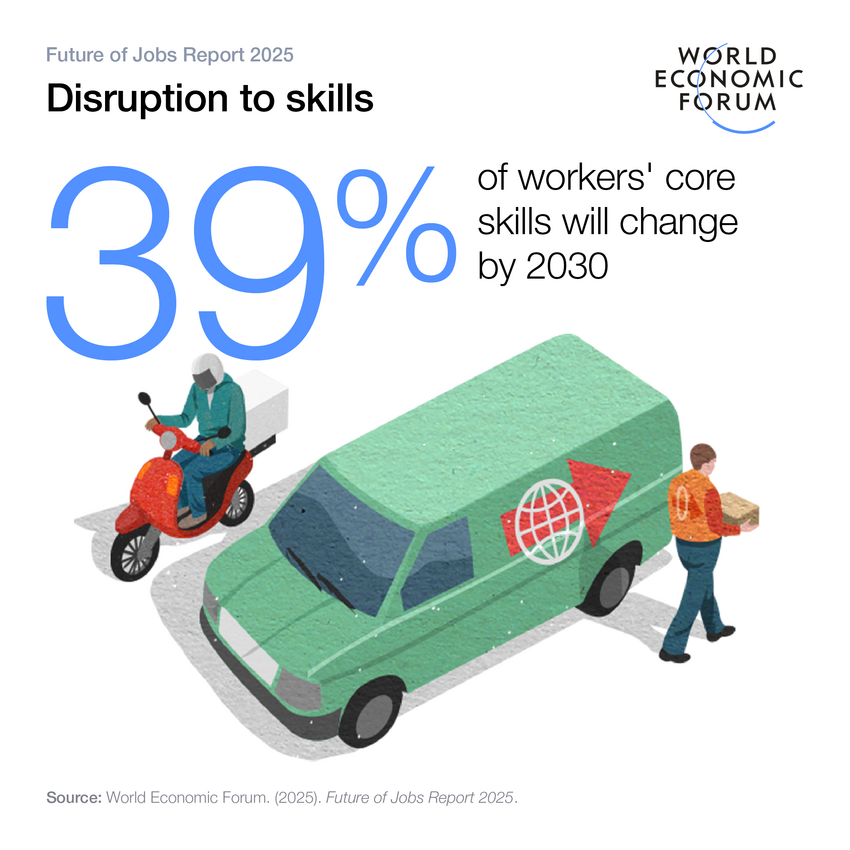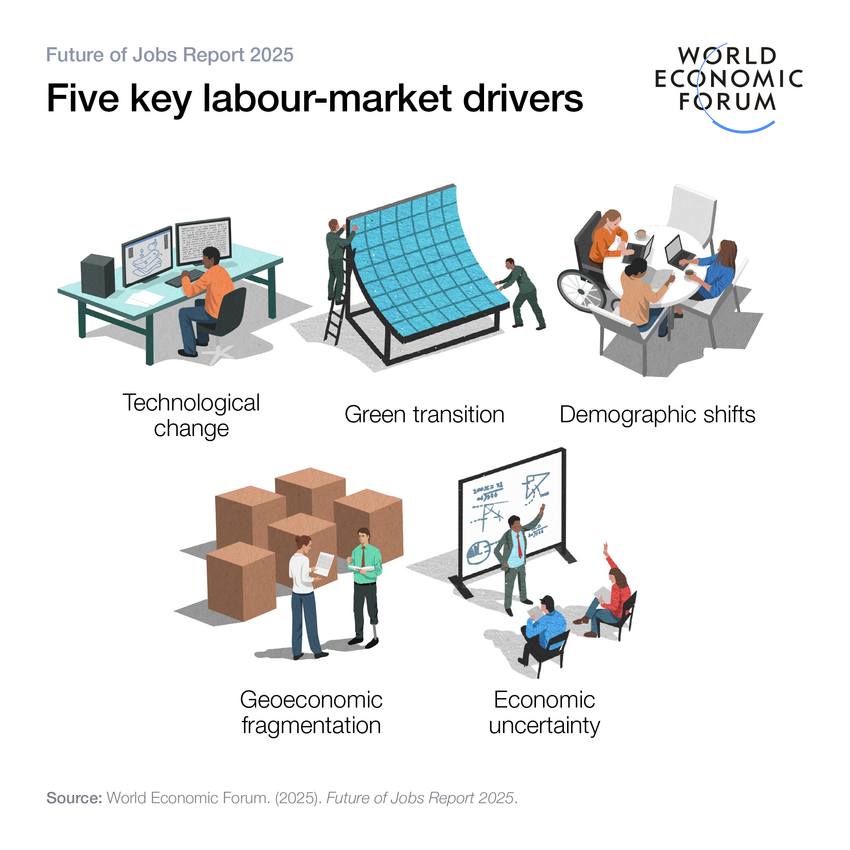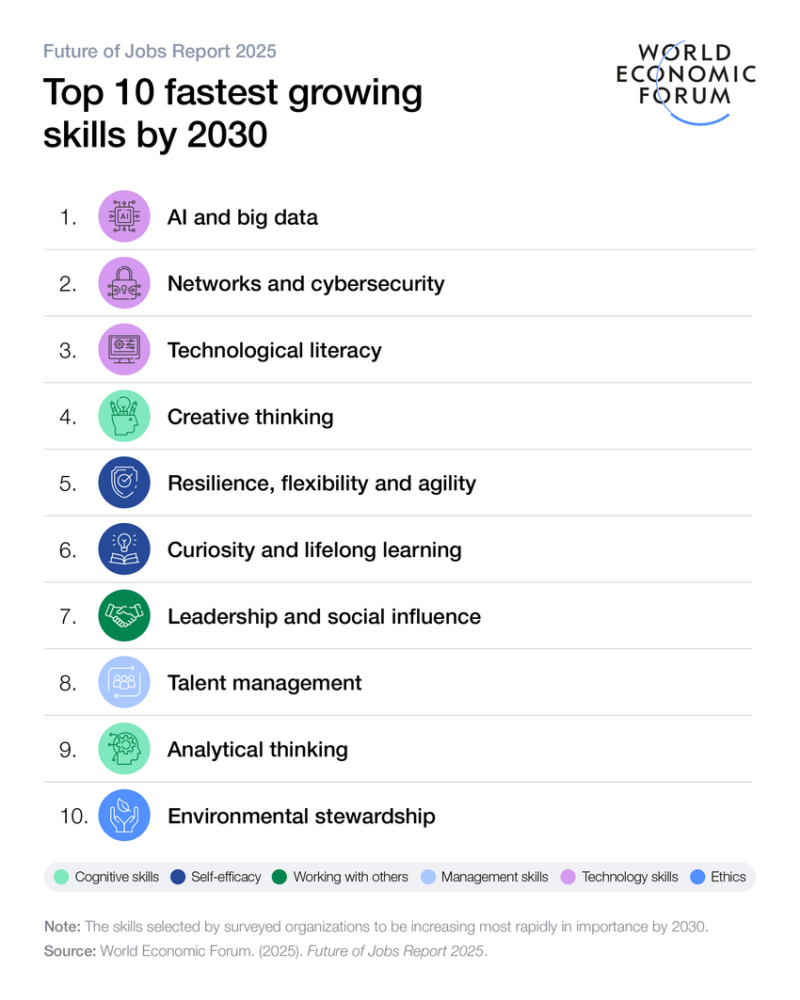To remain relevant, business education must do more than prepare graduates for today — it must empower them to shape tomorrow.
The global workforce is in flux. Rapid technological advancement, climate imperatives, demographic shifts and economic uncertainty are reshaping work as we know it.
More than 170 million new jobs will be created — and 92 million lost — by the end of the decade and about 40% of current job skills will become obsolete, according to the World Economic Forum’s (WEF’s) Future of Jobs Report 2025.
As artificial intelligence (AI) disrupts industries, climate change alters jobs and instability ripples through markets, business as usual is no longer viable. For MBA programmes and business schools, this is both a challenge and an opportunity: to produce agile, future-ready graduates who can lead through disruption.
This requires a fundamental rethink of how business education is delivered — from access and curriculum design to real-world alignment. Digital learning, modular and stackable qualifications, and stronger links between industry and academia are now essential.

Skills for tomorrow
The WEF report draws on data from more than 1,000 employers across 22 industries and 55 economies. It finds that 63% of companies see skills gaps as the biggest barrier to transformation, with six in 10 workers needing reskilling by 2030. Core skills such as analytical thinking, AI, big data and cybersecurity are in demand, while many current competencies are fast becoming outdated.
Employers are responding. More than 85% plan to upskill staff, and 70% expect to hire talent with new capabilities. This puts a premium on postgraduates who can drive workforce transformation and lead reskilling initiatives.
Business schools are adapting. Traditional subjects such as finance and strategy are being integrated with courses in AI, data analytics, sustainability and digital transformation. If the next generation of leaders is to thrive in a volatile, fast-changing world, then it’s not only about new tools — it’s about new thinking.

The human edge
Technical skills are critical, but no longer sufficient. Today’s business leaders must also be emotionally intelligent, adaptable and creative.
In South Africa’s complex, multicultural society, the ability to work across differences and build inclusive teams is not just an asset — it’s a necessity. Human-centric competencies such as problem-solving, collaboration and ethical leadership are climbing the priority ladder.
This means cultivating hybrid professionals: digitally fluent, analytically sharp and socially aware. Business schools are under pressure to equip students to navigate uncertainty and to lead in its midst.
Global forces, local effects
Labour market shifts are being shaped by more than just technology. Rising costs of living, inflation and geopolitical instability are driving structural changes. While ageing populations in high-income countries are driving demand for healthcare leadership, South Africa’s youthful population demands entrepreneurial thinking and scalable, localised solutions that apply global strategy.
The rise of green jobs is another game-changer. Climate adaptation is creating demand for work in renewable energy, sustainability and environmental risk management. At the same time, geopolitical tensions are increasing the need for skills in cybersecurity, supply chain resilience and international policy.
Graduates must be prepared to lead with purpose in a world where business decisions are inextricably linked to planetary and geopolitical realities, embedding ESG (environmental, social and governance) principles into strategy and linking decisions to social and environmental outcomes.

Lifelong learning, lasting effect
Disruption is now a given. To remain relevant, business education must do more than prepare graduates for today — it must empower them to shape tomorrow.
The pace of change demands continuous learning. Business schools are responding with flexible programmes, microcredentials and online offerings. Lifelong learning is now a baseline, not a bonus. As employers shift to skills-based hiring and redeploy workers displaced by automation, business education must go beyond traditional degrees. It must equip students with the mindset and tools to reinvent themselves — again and again.
By embedding agility, embracing sustainability and aligning with real-world needs, MBA and postgraduate programmes can produce graduates who are employable and indispensable. The future of work may be uncertain, but one thing is clear: the most valuable qualification is no longer just a degree — it’s the ability to adapt, lead with integrity, and keep learning.